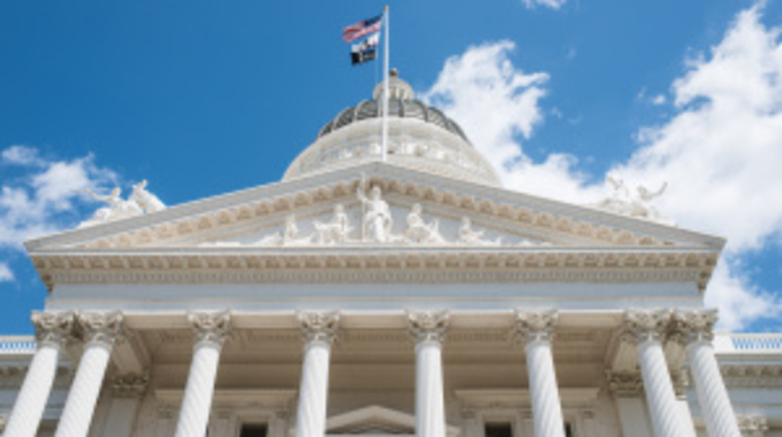California Courts of Appeal
An employer’s failure to investigate could be evidence of an illegal motive. Post-termination statements and evidence can sometimes be admissible as well.GARCIA-BOWER v. PREMIERE AUTOMOTIVE IMPORTS OF CA., LLC
EMPLOYEE MOLINA DID NOT DISCLOSE A DISMISSED CONVICTION ON HER JOB APPLICATION. THE CONVICTION WAS ERRONEOUSLY REPORTED BY THE DMV.
Plaintiff Tracey Molina applied for a job with Defendant Premiere Automotive Imports of Ca. On her job application, she truthfully answered “no” to a question asking about criminal convictions, and allowing her to exclude dismissed convictions. Molina had pled guilty and been convicted of misdemeanor grand theft, but had the conviction dismissed 4 years prior.
Premiere employed a private background check company to perform a check on Molina. The report correctly returned with no reportable criminal convictions.
As part of her job, Molina needed access to DMV files. Consequently, the DMV conducted its own background check through the Department of Justice. A DOJ attorney later testified that dismissals sometimes lag in the system, despite the law that they be reported within 30 days. Because Molina’s dismissal had not been entered in the DOJ system, the DOJ reported back incorrectly that she had an active conviction. The DMV therefore refused her access, and reported the reason to Premiere.
PREMIERE FIRED MOLINA WITHOUT ANY INVESTIGATION AT ALL
Premiere fired Molina the business day after receiving the DMV report. It conducted no investigation into the reason for the discrepancy between the private background check and the DOJ’s findings. It did not notify Molina of the issue prior to firing her, and it gave her no opportunity to respond to the issue.
During the termination meeting, Molina explained repeatedly that her conviction had been dismissed. When the company fired her anyway, Molina apologized, and a company official responded, “You should have told me.” Premiere stated on the termination paperwork that the reason for firing was falsification of the
THE LABOR COMMISSIONER FILED ON BEHALF OF MOLINA, BUT WAS NONSUITED AT TRIAL
Molina filed a complaint with the Labor Commissioner, claiming violation of Labor Code §98.6 (retaliation for exercising rights under the Labor Code) and 432.7 (using a dismissed conviction as a reason for an adverse employment action). The Labor Commissioner found in Molina’s favor, and the Director upheld the decision on appeal.
Premiere nonetheless refused to follow the Labor Commissioner’s order. The Labor Commissioner therefore filed a complaint on Molina’s behalf with the Superior Court.
After the Labor Commissioner’s case in chief, the trial court granted nonsuit, determining that there was no evidence that Premiere knew of Molina’s protected act prior to firing her. The Labor Commissioner appealed.
THE LACK OF ANY INVESTIGATION AND POST TERMINATION EVIDENCE CONSTITUTED EVIDENCE OF AN ILLEGAL MOTIVE
The appellate court reversed. It found that Premiere’s rush to judgment could cause a reasonable jury to find that it had an illegal motive in firing Molina.
Specifically, the difference between the private background check company’s report and that of the DOJ should have caused Premiere to question the latter’s accuracy. In fact, at trial Premiere’s witnesses admitted that they did have concerns about the discrepancy, but did nothing at all to understand it. The court cited to Cotran v. Rollins Hudig Hall International, Inc., 17 Cal.4th 93 (1998) that an adequate investigation includes, at a minimum, notice to the employee of the concern being investigated and a chance for the employee to respond.
Furthermore, Molina told Premiere in the termination meeting that the conviction had been dismissed. This was relevant given the totality of the facts in this case, even though Premiere had already made its termination decision.
Premiere argued that its decision was based not on the failure to disclose a dismissed conviction – which right Molina was guaranteed under Labor Code §432.7 – but rather on the fact that the DMV had stated that she could not have access to its files, and therefore she could not do her job. But this claim was refuted by the reason Premiere wrote in its own termination paperwork – that the firing was for falsification – as well as its employees statement to Molina in the termination meeting that “You should have told me.”
The Labor Commissioner did argue that an employer’s knowledge should not be an element when the claim involves an applicant or employee’s exercise of the right not to disclose a fact. The court explicitly did not reach that issue here.
The appellate court reversed and remanded for trial.
CONCLUSION
Employers should remember that the purpose of a workplace investigation is not to appear fair, but actually to be fair. Those who do no investigation, or even an inadequate one, open themselves up to liability.
Congratulations to our colleagues with the Labor Commissioner for continuing to protect California workers.
COA, 1st Dist., Div. 1, Filed 10/15/20. Opinion by Justice Sanchez.
Read More

